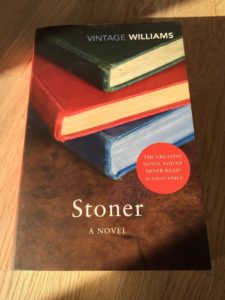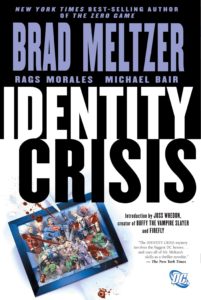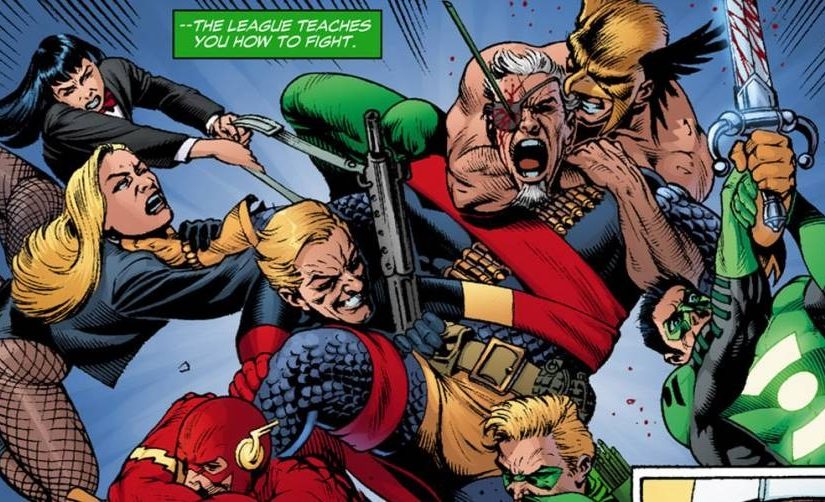Don’t smoke weed, wear tweed!
Kategori: In English
John Williams’ Stoner
Some describe William Stoner, the protagonist of Stoner, as a failure. That he is a failure as an academic, as a teacher, as husband – as a man. I could not disagree more.
Born on a farm into a non-intellectual home, he is sent to university to study agriculture, but switches to English literature – even though he at first is completely at loss on the subject. He is thus saved from the mind numbing farm life, to which he feels his parents have become victims. Made eloquently clear by Willimas, as Stoner makes a visit to the farm, after the death of his parents:
“Nothing had changed. Their lives had been expended in cheerless labor, their wills broken, their intelligence numbed. Now they were in the earth to which they had given their lives; and slowly, year by year, the earth would take them.”
One could argue that, from an intellectual standpoint, the earth had consumed his parents many years prior to their deaths.
In this, Stoner is a success. It is remarkable to see his intellectual awakening; to be part of this process, to witness his progress.
Awkward socially, Stoner does not make many friends or lovers in his lifetime – but being an introverted personality, he does not need much company for his happiness. His marriage, of course, is a failure, but little because of Stoner. His wife, Edith, is a clearly troubled woman, with a never ending self pity, and vicious, vengeful attitude. Their relationship is never warm, and their sexlife is, in the small sense they have one, beyond awkward. Periodically Edith makes Stoner’s life a living hell, while in other periods they simply live parallel lives, accepting but avoiding each other.
I would say that Stoner meets and marries Edith before he is emotionally awakened. That what he at first interprets as love for Edith, is in fact mere infatuation and intrigue. By their failed cold marriage he feels cheated out of a proper, passionate family life, and she feels cheated out of the social status and popularity she imagines she deserves and could’ve had, had she not been impeded by Stoner.
 Stoner does however find love, outside of wedlock, if only for a brief time in his life. Though he naturally would’ve wanted his love to be everlasting, it has to end, because of various circumstances. Despite this, he feels content with the fact that he had the chance to experience true love and passion – something not granted everyone, and something he had lost hope in ever finding.
Stoner does however find love, outside of wedlock, if only for a brief time in his life. Though he naturally would’ve wanted his love to be everlasting, it has to end, because of various circumstances. Despite this, he feels content with the fact that he had the chance to experience true love and passion – something not granted everyone, and something he had lost hope in ever finding.
A man of integrity, Stoner’s work suffers because of a feud with a colleague, who rises in ranks and makes it his mission to sabotage Stoner. Assigning Stoner classes and assignments he is clearly overqualified for, making sure to rid him of the academic satisfaction his work has previously granted him.
Stoner, in a way, reverts to the mindset of the farm boy he once was, shutting down emotionally and intellectually to endure this hardship. Accepting it as his fate, rather than to fight it. At least until he has had enough, at a point when he no longer feels he has anything to lose by challenging his organisational superiors.
In this, again, Stoner is a success. He is the only character in the book not in the slightest driven by status, prestige or titles. He is driven by the sole pleasure he finds in his work, in teaching, and in literature.
The only one I feel Stoner fails is his daughter. She becomes very emotionally scarred because of Edith’s whims, delusions and self interests. Stoner understands that the child will be hurt and inhibited by his wife’s controlling, demanding, and demeaning behaviour. Something his daughter will pay dearly for in adulthood. For this, Stoner should feel more guilt than he does.
While perhaps not a happy man, Stoner is content with how his life panned out. That he got to experience and fulfil more dreams than he could’ve hoped for, being born into a poor farmer’s family. He made his class journey. He made himself. The way he carried his intellect and competence in quiet dignity is admirable.
In William Stoner I see more success than failure.
This was written as a user review for GoodReads.com
Britain, Britain, Britain
I have for as long as I can remember had a keen interest in all things British. Be it pop culture and music, television, humour, history, football, clothing, the people, and last but not least, the beautiful English language. The UK, after Denmark, is my most frequently visited foreign country.
I have plunged myself into your debates and politics, not always with admiration, but always with fascination – despite the fact that it has nothing to do with my everyday life. I have made good friends, and had some of my best times on your shores. I’ve always felt welcome, and well met.
Now, I am not so sure.
Let’s leave all “facts” aside. The numbers are hard to make any sense of anyway, and The Economy feels like a beast of its own, held on a fragile leash by a small clique of very wealthy people. So I don’t want to talk figures. I want to talk about the message you send. The feelings you purvey.
You have made it clear that you are not interested in us anymore. That you are better off alone. You have made it clear, that instead of working out our differences, you’d rather, for worse or even more worse, leave.
Yes, Norway and Switzerland are doing fine outside the EU, and have some nice deals that give them special status. But you see, they were never in. They are, in a way, the lovers of Europe. Getting some of the EU love, without ever making that full commitment.
You, however, were a legal partner. We were married. You forced a very painful divorce upon us, and our relationship can never be the same again.
I am not saying that the English football hooligans are a fair representation of your country. But they were chanting “F**k off Europe, we’re all voting out!” while ransacking Lille and Marseille. You have to realize that this is the image the rest of Europe now have stuck on our cornea, as you make your lazy break up speech.
“It’s not me, it’s you.”
More than once have I heard the words: “If it wasn’t for us, you’d all be speaking German!” Mostly from US patriots admittedly, but that’s beside the point. Because suddenly, speaking German doesn’t sound like such a bad idea.
Britain. I am disappointed in you. You’ve let nostalgia and stubbornness get the better of you, and as a result we’ll all be worse off. You more than anyone.
Ich hoffe, dass ich falsch liege. Aber ich fürchte, ich bin es nicht.
Stephen Fry’s More Fool Me
Eloquent as always, Stephen Fry continues the story of his life, started in Moab Is My Washpot and The Fry Chronicles. I never read Moab, but the Chronicles I have, and found it utterly amusing. Good stories, told in that wonderfully witty, intellectual, drily British, Fryesque way, that just makes you long for a pipe and a brandy in a Winchester armchair.
Sadly, More Fool Me was a bit of a let down. The stories just aren’t as good as in the previous volumes. Perhaps because the story of how to gain success is more interesting than the story of when you’ve actually succeeded. Right from the start, you lack the reader’s empathy for the underdog. Also, with success, your room to maneuver gets ever more narrow. As an underdog, you shooting snooker with a bunch of celebrities is amusing. But when you yourself has reached celebrity, snooker with the same celebrities can easily be seen as mere bragging.
More Fool Me retreads a lot of ground, retelling things already told in the two previous volumes. Good stories, but nothing new. It continues to, at great length, unfold the story of the London cocaine scene of the late 80’s and 90’s – detailed but carefully, as to not spill any beans not already spilt. Fry alludes to, but never confirms anything about anyone.
This sort of takes the edge off the story. While I’m not one drawn to gossip, I find if you’re telling a story of decadence and debauchery, you need to, if not spill then at least intentionally drop a bean or two. Fry is careful not to upset anyone, which I honour him for, but subsequently the story suffers.
While More Fool Me is readable for Fry’s mastery of the English language alone, if you haven’t read Moab Is My Washpot or The Fry Chronicles, I suggest you start there.
This was written as a user review for GoodReads.com
Brad Meltzer – Identity Crisis
I’m not sure why I even bother with cross-over comics. They usually feel like some comic book artist wanted to draw ALL the superheroes in one go and pitches a decent idea, that in the end just doesn’t work.
I like the set-up of the story, where some villain is going after the family of the heroes. Stories where superheroes are portrayed as humans rather than super-humans usually open up for some proper drama. Not in Identity Crisis though.
The story unfolds as an average (at best!) whodunit, where various DC c omic owned characters fight and argue and fight some more. The story never grips me, and it’s all horribly overacted, and questions of morality that are brought up feel…I don’t know, somewhat contrived.
omic owned characters fight and argue and fight some more. The story never grips me, and it’s all horribly overacted, and questions of morality that are brought up feel…I don’t know, somewhat contrived.
Oh, and then there’s the ever ongoing feud between Batman and Superman, that makes all the nerds giggly and excited. Whose side are you on? Who would take who out, should it come to blows? (Superman, the boring Mr. Goody Two Shoes, would of course turn Batman into a bloody pulp, lest Batman fits some kryptonite on his gloves – always the kryptonite, yawn! But I digress.)
The end result is really rather boring, though with very well crafted drawings. If Identity Crisis has anything going for it, it looks good. Rags Morales and Michael Blair has done a smashing job.
But without the story to back it up, it’s just a bunch of nice pictures.
This review was written as a user review for GoodReads.com


